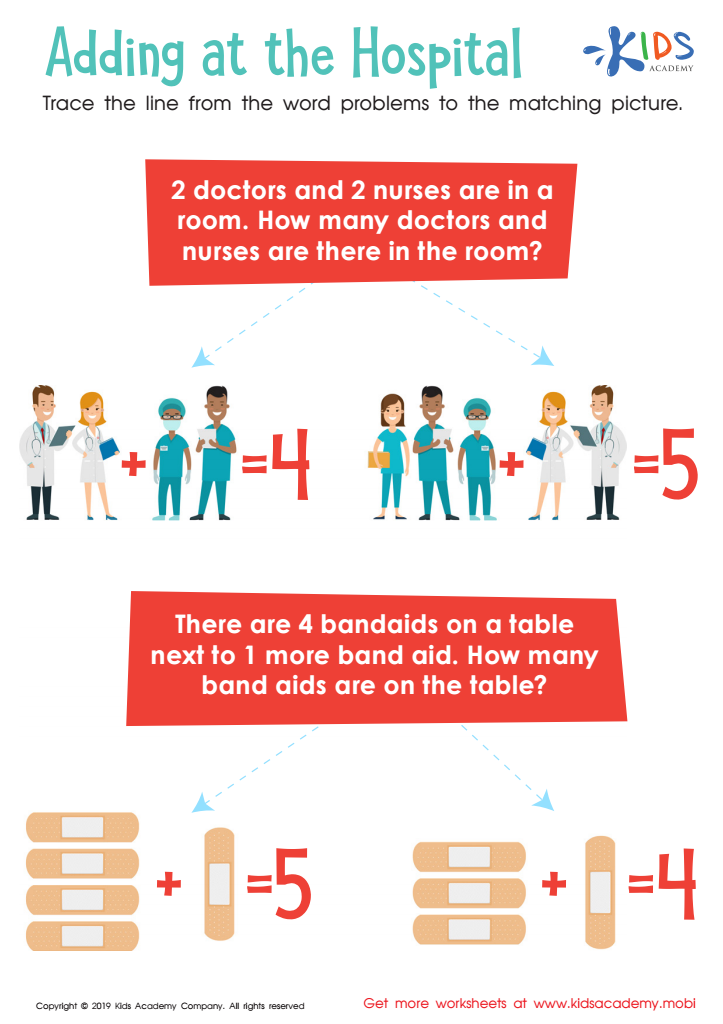Mental math practice Normal Math Worksheets for 4-Year-Olds
3 filtered results
-
From - To
Enhance your 4-year-old's math skills with our engaging Mental Math Practice Normal Math Worksheets! Designed specifically for early learners, these worksheets provide a fun way to strengthen basic math concepts through interactive exercises. Children will explore essential skills such as counting, number recognition, and simple addition. Our thoughtfully crafted activities foster critical thinking and confidence in young minds, laying a solid foundation for future math success. Encourage independent learning with easy-to-follow worksheets that set the stage for a positive educational experience. Engage your child's curiosity and help them develop a love for math today! Visit us to access these valuable resources.


7 Continents and 7 Seas Worksheet


Adding at the Hospital Worksheet


Tricky Problems Worksheet: Part 2
Mental math practice is crucial for the developmental stage of 4-year-olds, benefitting both their cognitive abilities and foundational math skills. At this age, children's brains are highly adaptable and absorbent, making it an ideal time for them to engage in activities that enhance numerical understanding. Mental math cultivates critical thinking, problem-solving, and spatial awareness—all essential skills for later academic success.
By incorporating mental math into daily routines, parents and teachers can bolster a child's confidence and enjoyment in math. Activities such as counting objects, recognizing patterns, or envisioning simple addition and subtraction problems help children develop number sense without reliance on written calculations. This instills an intuitive grasp of math concepts, making formal education smoother as they advance through school.
Moreover, engaging in mental math encourages a collaborative learning environment, promoting valuable social interaction among peers or with family members. It supports developmental norms as children learn in various contexts, increasing their motivation and enthusiasm. Ultimately, prioritizing mental math practice at this early age lay a strong foundation for lifelong mathematical understanding, prepare students for future learning scenarios, and nurture a positive attitude towards challenges in math. Hence, parents and teachers must actively promote and support mental math exercises.
 Assign to My Students
Assign to My Students
















